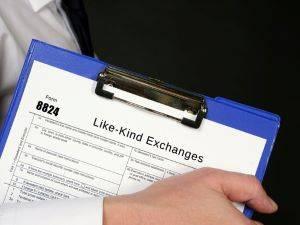How Have IRS Rules Changed for Section 1031 Like-Kind Exchanges?
 Major financial transactions can have a variety of tax consequences, but taxpayers may be able to make use of tax laws and regulations to minimize the taxes they will be required to pay. Real estate transactions will often result in capital gains taxes being applied to the profits earned, but in some cases, a taxpayer may be able to use a “like-kind exchange” to defer the taxes owed. However, the Tax Cuts and Jobs Act (TCJA) of 2017 made some changes to the types of property that can be included in these exchanges, and the IRS recently issued new rules that will apply in these cases.
Major financial transactions can have a variety of tax consequences, but taxpayers may be able to make use of tax laws and regulations to minimize the taxes they will be required to pay. Real estate transactions will often result in capital gains taxes being applied to the profits earned, but in some cases, a taxpayer may be able to use a “like-kind exchange” to defer the taxes owed. However, the Tax Cuts and Jobs Act (TCJA) of 2017 made some changes to the types of property that can be included in these exchanges, and the IRS recently issued new rules that will apply in these cases.
What Is a Like-Kind Exchange?
Section 1031 of the Internal Revenue Code allows taxpayers to defer capital gains taxes when selling certain types of property if the proceeds from the sale are reinvested into replacement property. The replacement property must be of a “like-kind” to the original property, meaning that it is property of the same type. Typically, business or investment property can be exchanged for other business or investment property.
Updated Rules for Section 1031 Exchanges
The TCJA restricted like-kind exchanges to real property used for business or investment purposes. It also eliminated certain types of personal or intangible property from being considered in these exchanges, including equipment and machinery, artwork and collectibles, vehicles, and patents or other intellectual property.
In December 2020, the IRS issued new rules further to clarify the types of property that can be considered real property in like-kind exchanges. Applicable property will include property that is classified as real property under state or local laws or in IRS regulations. The regulations also include tests that allow taxpayers to consider the facts and circumstances of property to determine whether it is real property or personal property.
The regulations state that real property includes land, improvements to land such as buildings or other permanent structures, and the natural products of land, such as crops, mines, or wells. Certain types of intangible property may also be included if they derive their value from real property. This intangible property may include ownership interests in real property, development rights, or licenses and permits for the use or occupation of land.
Contact Our San Jose, CA Tax Lawyer
Proper use of like-kind exchanges can help taxpayers invest in property while deferring taxes until assets are cashed out. If you are looking to make a real estate transaction involving a business or investment property, John D. Teter Law Offices can help you understand how changing IRS regulations may apply to you, and we can ensure that you meet all requirements during a 1031 exchange. To learn how we can help you address tax concerns and ensure that your financial interests are protected while making investments, contact our San Jose real estate transaction attorney at 408-866-1810.
Sources:
https://www.irs.gov/pub/irs-drop/td_9935.pdf
https://www.investopedia.com/financial-edge/0110/10-things-to-know-about-1031-exchanges.aspx









